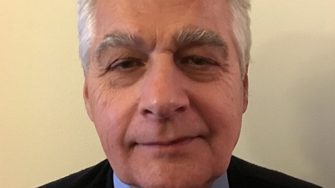SPOTLIGHT: Richard Taylor recognised as Emeritus Professor for impact in population health
Professor Richard Taylor has a long and distinguished career as an epidemiologist and educator in the discipline of public health medicine.
Professor Richard Taylor has a long and distinguished career as an epidemiologist and educator in the discipline of public health medicine.

Professor Richard Taylor has a long and distinguished career as an epidemiologist and educator in the discipline of public health medicine. As he retires from his current position at UNSW and becomes Emeritus Professor, he will continue to support teaching, capacity development of junior staff particularly in international health, and research.
It was Richard’s interest in improving health at a population scale that motivated his move into international public health, after 12 years in clinical medicine.
“Population health is about keeping people well – this is influenced by society, environment and the economy; it is not just an individual matter,” explains Richard.
“I started working in population health because I wanted to help improve the health of millions of people with proven prevention interventions,” he says.
"I thrive in this area because I’m a ‘generalist’ -- one day you’re dealing with heart disease, the next day could be dengue control, and the following day tuberculosis,” he says. “The lessons from one disease or issue can be adapted to tackle something else.”
There are three key areas that Richard sees as equally critical to improving population health - teaching, research and service to the community. In all three his contributions are outstanding.
Richard was instrumental in building the Australian discipline of International Public Health. He developed and introduced the Master of International Public Health at Schools of Public Health at Universities of Sydney, Queensland and New South Wales, which has since attracted significant numbers of domestic and international students. He has mentored and supported junior and early career researchers to develop careers as independent researchers and secured numerous research grants and consultancy funding within Australia and internationally.
Richard’s accomplishments in research span the field of population health and epidemiology in the Asia-Pacific, including in cancer screening, health promotion, adult health literacy, infectious disease control, maternal and neonatal health, cardiovascular disease risk factors, and trends in premature and mortality rates; and working with Aboriginal communities.
There isn't a Pacific Island state Richard hasn't visited. He has worked with health departments, consultancies, and international agencies related to health across the Asia-Pacific, such as the World Health Organization and South Pacific Commission (now Pacific Community). His has conducted field work and public health training, investigated population health status, and assessed population health interventions.
Despite retiring from his current position at UNSW, Richard has no intention of slowing down any time soon.
“As I ‘shift gears’, I am looking forward to doing more of the same, of what I love, such as supervising PhD students and research,” says Richard. “COVID-19 is a strong reminder of the continual need for communities to be prepared to respond at a population level to current and emerging health priorities - with proven interventions, robust evidence and a qualified workforce.”
Professor Rebecca Ivers, Head of the School of Population Health says: “Appointment as Emeritus Professor recognises Richard’s contribution to the field of international public health and the high regard of colleagues internationally and locally for this work - I look forward to what he will achieve next in improving the health of millions.”
In 2011 Richard received the Lifetime Award for Research into Suicide by Suicide Prevention Australia.